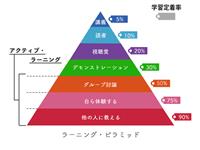1
1
Chapter 1
第1章
Ten Principles of
Economics
经济学十大原理
2
内容提要
Outline
?什么是经济学
What is Economics
?经济学十大原理
Ten Principles of Economics
3
经济学是一门社会科学
Economics
is a Social Science
?结合了政治学和社会学的优点。
Combines the virtues of politics and science.
?它的主题是社会的——人们的选择如何引导他们的生
活,以及他们如何相互影响。
Its subject matter is society – how people choose to lead
their lives and how they interact with one another.
?但它以科学的冷静来研究这个主题。通过把科学方法
引入政治问题,经济学力图对所有社会面临的基本挑
战有所贡献。
It approaches its subject with the dispassion of a
science. By bring the methods of science to the question
of politics, economics tries to make progress on the
fundamental challenges that all societies face.
4
经济学
在各门学科中的位置
自然科学自然科学社会科学社会科学人文人文
数理化生数理化生经经政社心政社心文史哲文史哲
工工商商
美术美术
医医法法
公共公共
管理管理
新闻新闻
传播传播
国际国际
关系关系
建筑建筑教育教育公共公共
卫生卫生
5
经济学的学科分类:中国
?一级学科、二级学科:
�?理论经济学:政治经济学、经济思想史、经
济史、西方经济学、世界经济、人口、资源
与环境经济学
�?应用经济学:国民经济学、区域经济学、财
政学、金融学、产业经济学、国际贸易学、
劳动经济学、统计学、数量经济学、国防经
济学
6
经济学的学科领域:美国
?微观经济理论
?宏观经济学
?计量经济学
?产业组织
?劳动经济学
?金融学
?公共财政
?国际经济学
?发展经济学
?比较经济学
?政治经济学
?法律和经济学
?经济史
2
7
学习经济学的三个层次
?经济学原理不用公式用图表(对理工科学生尤为重要)
;现代经济学的入门课,三个主要目的:
�?领会现代经济学的基本思想、概念与分析方法
�?培养对现实世界经济行为与经济现象的观察能力
�?训练经济学直觉(intuition)
?中级经济学用一些数学(对理工科学生并不难)
�?领会原理(图形)背后的数学推理(理论)
�?领会实证分析的基本思想
�?掌握理论和实证分析的基本方法
?高级经济学用很多数学
�?严格、系统的数学推理与实证分析的训练
�?目的:学术研究
8
Why Study Economics?
学习经济学的三个原因
?经济学有助你了解你生活的世界。
Economics will help you understand the world
in which you live.
?经济学使你更精明地参与经济活动。
Economics will make you a more astute
participant in the economy.
?经济学使你更好地理解经济政策的潜力与局限
性。
Economics will give you a better understanding
of the potential and limits of economic policy.
9
Why Study Economics?
学习经济学的三个原因
?大学一年级的经济学原理课程使我看到
了一种新的思维方式。
My freshman course on the principles of
economics opened my eyes to a new way
of thinking.
N. Gregory Mankiw, in the textbook
10
经济Economy. . .
? ……经济一词,来源于希腊语,其
意为“管理一个家庭的人”。
. . . The word economy comes from a
Greek word for “one who manages a
household.”
?中文:经世济民
11
一个家庭和一个经济一样
面临许多决策
A household and an economy
face many decisions:
�?谁去干活?
Who will work?
�?生产什么物品?生产多少?
What goods and how many of them should be
produced?
�?在生产中使用何种资源?
What resources should be used in production?
�?物品应该以何等价格出售?
At what price should the goods be sold?
12
社会与稀缺资源
Society and Scarce Resources
对社会资源的管理之所以重要,
是因为资源是稀缺的。
The management of society’s
resources is important because
resources are scarce.
3
13
稀缺性Scarcity . . .
……意味着社会只有有限的资源,
而不能生产人们想要得到的一切物
品和服务。
. . . means that society has limited
resources and therefore cannot
produce all the goods and services
people wish to have.
14
经济学Economics
经济学是关于社会如何管理其稀
缺资源的学问。
Economics is the study of how
society manages its scarce
resources.
15
经济学家研究
Economists study. . .
�?人们如何作出决策。
How people make decisions.
�?人们如何相互作用。
How people interact with each other.
�?影响经济整体的力量和趋势。
The forces and trends that affect the economy as a
whole.
16
经济学的十个原理
Ten Principles of Economics
1. 人们面临得失交换(权衡取舍)。
People face tradeoffs.
2. 某物的成本是为此所放弃的东西。
The cost of something is what you give up
to get it.
3. 理性人思考边际量。
Rational people think at the margin.
4. 人们会对激励作出反应。
People respond to incentives.
人们如何作出决策
How People Make Decisions
17
经济学的十个原理
Ten Principles of Economics
5. 贸易能使人人收益。
Trade can make everyone better off.
6. 市场通常是组织经济活动的好方式。
Markets are usually a good way to
organize economic activity.
7. 政府有时可以改进市场结果。
Governments can sometimes improve
market outcomes.
人们如何相互作用
How People Interact
18
经济学的十个原理
Ten Principles of Economics
8.一国的生活水平取决于它的生产。
The standard of living depends on a
country’s production.
9. 当政府发行了过多的货币时,物价上涨。
Prices rise when the government prints too
much money.
10. 社会面临通货膨胀和失业之间的短期得失交换。
Society faces a short-run tradeoff between
inflation and unemployment.
整体经济如何运行
How the Economy as a Whole Works
4
19
1. 人们面临得失交换
People face tradeoffs.
“没有免费的午餐!”
“There is no such thing
as a free lunch!”
20
为了得到一样东西,我们通常不得不
放弃另一样东西。
To get one thing, we usually have to
give up another thing.
�?食品和衣服Food v. clothing
�?闲遐和工作Leisure time v. work
�?效率和平等Efficiency v. equity
1. 人们面临得失交换
People face tradeoffs.
21
�?效率:社会从其稀缺资源中获得尽可能多(饼
的大小)。
Efficiency means society gets the most that it
can from its scarce resources.
�?平等:资源的收益在社会成员中公平分配(饼
的分割)。
Equity means the benefits of those resources
are distributed fairly among the members of
society.
效率和平等
Efficiency v. Equity
1. 人们面临得失交换
People face tradeoffs.
22
2. 某物的成本是为此而放弃的东西
The cost of something is what you
give up to get it.
做决定需要考虑它的成本和收益。
A decision requires considering its costs and
benefits.
�?是否要上大学? Whether to go to college?
�?是否要去约会?Whether to go out on a date?
�?是否要去上课?Whether to go to class?
23
2. 某物的成本是为此而放弃的东西
The cost of something is what you
give up to get it.
某物的机会成本是为了得到它
而放弃的东西。
The opportunity cost of an
item is what you give up to
obtain that item.
24
3. 理性人考虑边际量
Rational people think at the
margin.
边际变化是对已有行动计划的小的、增量调整。
Marginal changes are small, incremental
adjustments to an existing plan of action.
人们作决策时比较边际上的成本和收益
People make decisions by comparing
costs and benefits at the margin.
5
25
4. 人们会对激励作出反应
People respond to incentives.
�?成本和收益的边际变化促使人们作出反应。
Marginal changes in costs or benefits motivate
people to respond.
�?当某种方案(相对于另一方案)的边际收益超
过边际成本时,人们就会放弃另一方案而去选
择这一方案。
The decision to choose one alternative over
another occurs when that alternative’s
marginal benefits exceed its marginal costs!
26
5. 贸易能使人人收益
Trade can make everyone better off.
�?人们从相互间的贸易中受益。
People gain from their ability to trade with one
another.
�?竞争增加了来自贸易的益处。
Competition results in gains from trading.
�?贸易可以使人们专业分工,做他们最擅长的事
Trade allows people to specialize in what they
do best.
27
6. 市场通常是组织经济活动的好方式
Markets are usually a good way to
organize economic activity.
�?在市场经济中,家庭决定买什么和为谁
工作。
In a market economy, households decide
what to buy and who to work for.
�?企业决定雇用谁和生产什么。
Firms decide who to hire and what to
produce.
28
6. 市场通常是组织经济活动的好方式
Markets are usually a good way to
organize economic activity.
亚当斯密观察到,家庭和企业在市
场中相互作用时,它们的行为仿佛
被一只“看不见的手”指挥着。
Adam Smith made the observation
that households and firms
interacting in markets act as if
guided by an “invisible hand.”
29
6.市场通常是组织经济活动的好方式
Markets are usually a good way to
organize economic activity.
�?因为家庭和企业在决定买什么和卖什么时眼睛都盯着价
格,他们就不自觉地将他们这些行为的社会收益与成本
考虑在内了。
Because households and firms look at prices when
deciding what to buy and sell, they unknowingly take
into account the social benefits and costs of their actions.
�?这样一来,价格引导着决策者们,达到趋向于使整个社
会福利最大的结果。
As a result, prices guide decision makers to reach
outcomes that tend to maximize the welfare of society as
a whole.
30
7. 政府有时可以改进市场结果
Governments can sometimes
improve market outcomes.
当市场失灵的时候,政府可以干预
以提高效率和平等。
When the market fails (breaks
down) government can intervene to
promote efficiency and equity.
6
31
7. 政府有时可以改进市场结果
Governments can sometimes
improve market outcomes.
当市场不能有效率地配置资源
时,市场失灵发生。
Market failure occurs when the
market fails to allocate
resources efficiently.
32
7. 政府有时可以改进市场结果
Governments can sometimes
improve market outcomes.
市场失灵可以由外部性引起,它是某人或
企业的行为对旁人的利益造成的影响。
Market failure may be caused by an
externality, which is the impact of one
person or firm’s actions on the well-being
of a bystander.
33
7. 政府有时可以改进市场结果
Governments can sometimes
improve market outcomes.
市场失灵可以由市场势力引起,它是某人
或企业过分地影响市场价格的能力。
Market failure may also be caused by
market power, which is the ability of a
single person or firm to unduly influence
market prices.
34
8.一国的生活水平取决于它的生产
The standard of living depends on
a country’s production.
生活水平可由不同方式度量
Standard of living may be measured in
different ways:
�?比较个人收入。
By comparing personal incomes.
�?比较一国产出的市场总价值。
By comparing the total market value of a
nation’s production.
35
8.一国的生活水平取决于它的生产
The standard of living depends on
a country’s production.
几乎全部的生活水平的不同都可以由生产
率的不同来解释。
Almost all variations in living standards
are explained by differences in
countries’ productivities.
36
8.一国的生活水平取决于它的生产
The standard of living depends on
a country’s production.
生产率是每个工人每小时生产的产品和服务
Productivity is the amount of goods and
services produced from each hour of a
worker’s time.
高生产率�?高生活水平
Higher productivity �? Higher standard of living
7
37
9.当政府发行过多货币时,物价上升
Prices rise when the government
prints too much money.
通货膨胀是经济中的整体物价水平的上升。
Inflation is an increase in the overall level of
prices in the economy.
�?通货膨胀的一个原因是货币发行量的增长。
One cause of inflation is the growth in the
quantity of money.
�?当政府发行大量货币时,货币的价值就下降。
When the government creates large quantities
of money, the value of the money falls.
38
10. 社会面临通货膨胀与失业之间的
短期得失交换
Society faces a short-run tradeoff
between inflation and unemployment.
菲利普斯曲线说明通货膨胀和失业之间的得失交换
The Phillips Curve illustrates the tradeoff between
inflation and unemployment:
�?通货膨胀�?�×失业
�?Inflation �?�×Unemployment
这是短期内才存在的得失交换关系
It’s a short-run tradeoff!
总结
Summary
�?当人们做出决策时,他们面临着得失交
换。
When individuals make decisions, they
face tradeoffs.
�?理性人通过比较边际成本与边际收益来
做出决策。
Rational people make decisions by
comparing marginal costs and marginal
benefits.
总结
Summary
�?人们可以通过相互贸易来获益。
People can benefit by trading with each
other.
�?市场通常是协调贸易的好方法。
Markets are usually a good way of
coordinating trades.
�?政府有可能会改进市场的结果。
Government can potentially improve
market outcomes.
总结
Summary
�?一国的生产率决定其生活水平。
A country’s productivity determines its
living standards.
�?社会面临着通货膨胀与失业之间的短期
得失交换。
Society faces a short-run tradeoff
between inflation and unemployment.




